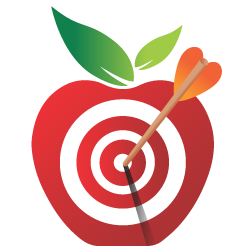How to gain weight as a vegan on a budget with histamine intolerance?
Hey you all,
I signed up because I need some help. I have been vegan for a year and a half now and I've been underweight my whole life and it actually never bothered me. I have histamine intolerance which means I am on a rather restrictive diet even without throwing veganism into the mix so I lost a lot of weight when I became vegan, simply because I either can't tolerate certain foods or can't afford them.
I can cook quite decently but I am having issues understanding nutrition and how to gain weight on a vegan diet. I desperately need to gain weight as soon as possible because I need to have an important surgery and can't be approved for it until I have a somewhat healthy BMI (it's currently around 13.9 and I have to get to 18). I have managed to put on 8 pounds in 2 months but I lost it all again by accident.
I have no idea how to put on the 35 pounds my doctor asked me to gain. I have tried adding sesame oil to everything but I just hate the texture of oily food and I don't like sweets either. Though I have pushed myself to eat more fruits since they have more calories than veggies and also to add oil and seeds and stuff like that, I got tired of it very soon cause I didn't like any of the food I was eating and then procrastinated on eating which ended up to me skipping meals here and there which is why I lost all the weight I gained again. I know that I have to push myself more and I am willing to do so.
But maybe someone here has suggestions for low histamine vegan dishes that can help me put on some weight? I'd be so grateful for that.
If I don't manage to put on the required weight they might force feed me dairy products in hospital and I really want to avoid that. I am very passionate about veganism and I don't want to give up on it just because I am too dumb to manage my health. Instead I'd rather learn and improve
Hey you all,
I signed up because I need some help. I have been vegan for a year and a half now and I've been underweight my whole life and it actually never bothered me. I have histamine intolerance which means I am on a rather restrictive diet even without throwing veganism into the mix so I lost a lot of weight when I became vegan, simply because I either can't tolerate certain foods or can't afford them.
I can cook quite decently but I am having issues understanding nutrition and how to gain weight on a vegan diet. I desperately need to gain weight as soon as possible because I need to have an important surgery and can't be approved for it until I have a somewhat healthy BMI (it's currently around 13.9 and I have to get to 18). I have managed to put on 8 pounds in 2 months but I lost it all again by accident.
I have no idea how to put on the 35 pounds my doctor asked me to gain. I have tried adding sesame oil to everything but I just hate the texture of oily food and I don't like sweets either. Though I have pushed myself to eat more fruits since they have more calories than veggies and also to add oil and seeds and stuff like that, I got tired of it very soon cause I didn't like any of the food I was eating and then procrastinated on eating which ended up to me skipping meals here and there which is why I lost all the weight I gained again. I know that I have to push myself more and I am willing to do so.
But maybe someone here has suggestions for low histamine vegan dishes that can help me put on some weight? I'd be so grateful for that.
If I don't manage to put on the required weight they might force feed me dairy products in hospital and I really want to avoid that. I am very passionate about veganism and I don't want to give up on it just because I am too dumb to manage my health. Instead I'd rather learn and improve


